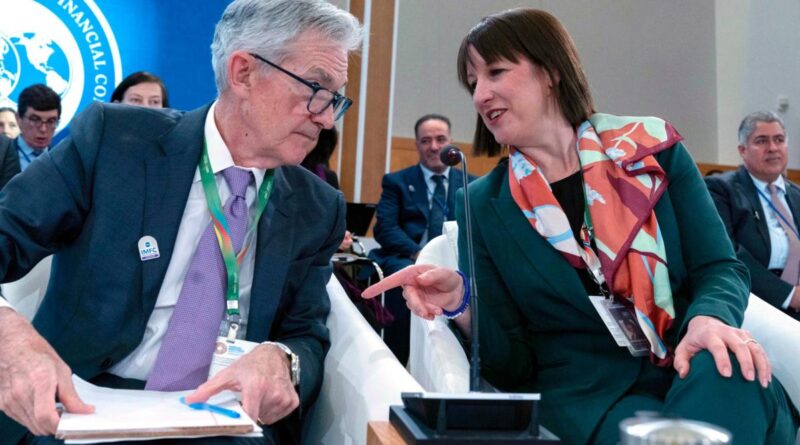Rachel Reeves admits some working people face tax rises at Budget
Rachel Reeves has admitted that some working people will face tax rises at her maiden Budget next week, committing only to not raising “key” levies on workers.
The Chancellor also suggested that the Prime Minister is a “working person” after Sir Keir Starmer suggested landlords and anyone earning their income from assets are not workers.
Responding to a question on LBC Radio on whether some working people faced tax rises, the Chancellor said: “It’s not possible to close the gap in our public finances without having to make difficult decisions.
“I’m making the choice to not increase the key taxes that working people pay.”
Ms Reeves denied this would be in breach of Labour’s manifesto pledge not to raise taxes on workers.
She said: “We made a clear commitment in our manifesto not to increase the key taxes that working people pay, National Insurance, income tax and VAT.”
Ms Reeves’ remarks come after James Murray, the Exchequer Secretary to the Treasury, was pressed several times on the definition of a working person but was unable to say whether it included landlords.
The comments suggest that taxes on capital gains from selling assets like shares and rental properties will increase at the Budget on Oct 30.
When asked if Sir Keir met the definition for being a working person, Ms Reeves said: “The Prime Minister gets his income from going out to work, working for our country. He is a working person.”
Read the latest updates below.
06:46 PM BST
Signing off…
Thanks for joining us today on the Markets blog.
We will be back on Monday morning, but in the meantime you can follow all the latest business news and analysis here.
06:40 PM BST
Think tank says axing CGT would raise growth
As Britain braces for tax hikes, a free-market think tank linked to former chancellor Nadhim Zahawi has urged a cut.
A report from the Adam Smith Institute says that capital gains tax damages revenue and economic growth. The author, Peter Young, says:
Historical evidence shows that reductions in CGT rates lead to increased tax revenues as investors are more likely to realise gains. For instance, when Ireland halved its CGT rate in 1997, revenues doubled within two years.
Our modelling suggests that eliminating CGT in the UK could increase national income by 0.9pc annually, equivalent to £25 billion, with two-thirds of lost revenue offset by increased tax revenue derived from that higher national income with further revenue increases resulting from higher investment and productivity.
Maxwell Marlow, director of research at the Adam Smith Institute, said:
Taxes on capital remain some of the most economically destructive and disruptive interventions a government can make. The pernicious capital gains tax in particular has all sorts of negative impacts on the economy, from stifling entrepreneurship and innovation, to keeping productivity- and workers’ wages – low.
We urge the Chancellor to outline steps to scrapping capital gains tax altogether at the next Budget. This would be a pro-growth, pro-business move that would pay for itself through enhanced economic growth and investment.
06:17 PM BST
Non-doms urge Reeves to u-turn on tax raid
Wealthy foreign investors living in Britain are urging the Chancellor to change course on the tax treatment of non-doms – or face an exodus of the financial elite.
Bloomberg reported that Varun Chandra, the Prime Minister’s business adviser, met yesterday with lobby group Foreign Investors for Britain.
Leslie MacLeod Miller, chief executive officer of Foreign Investors for Britain, said:
We are continuing to ring the alarm bell – those with the broadest shoulders have the longest legs
We need urgently to stem the flow of tax-paying investors to Italy, Switzerland, Dubai, Cyprus and other internationally competitive jurisdictions…
Engaging with the investment community is essential to maintaining the UK’s status as a top destination for global investment. We strongly urge delaying any changes for non-domiciliaries.
Read more on how the tax rules faced by non-doms are changing…
06:10 PM BST
EY partners hit by £38,000 pay cut


EY’s UK partner pay has fallen by £38,000 as the “big four” accountancy giant grapples with a slowdown in deal-making.
Average pay per equity partner declined 5pc from £761,000 to £723,000 in the financial year ending June, the firm announced as part of its latest results on Friday.
The accounting company blamed the reduced payouts on the fact its cohort of partners swelled from 886 to 903 over the past year.
However, the firm’s fee income remained flat at £3.7bn in 2024, which led to the pot of profits available to partners falling from £659m to £653m.
EY said profits had stagnated after a slump in large cross-border deals and transformation projects.
Read the full story…
06:06 PM BST
Trade war between US and Europe would only create losers, warns German finance minister
A trade conflict between the United States and the Europe would not see any winner but only losers, German finance minister Christian Lindner has said.
Mr Lindner said he was following the presidential race between Republican Donald Trump and Democrat Kamala Harris, and saw the risk of tariffs in the next US administration.
He said:
Whoever will enter the White House, we are at the forefront of a new era of transatlantic diplomacy to convince our US partners that we need more or less a new trade agreement between the US and the EU instead of introducing tariffs.
Earlier this month, Donald Trump, who has pledged swwing trade tariffs, said that the EU posed an economic threat to the US. He said:
You know what’s very tough? The European Union – our beautiful European countries.
If you add them up they’re almost the size of us. They treat us so badly – we have a deficit.
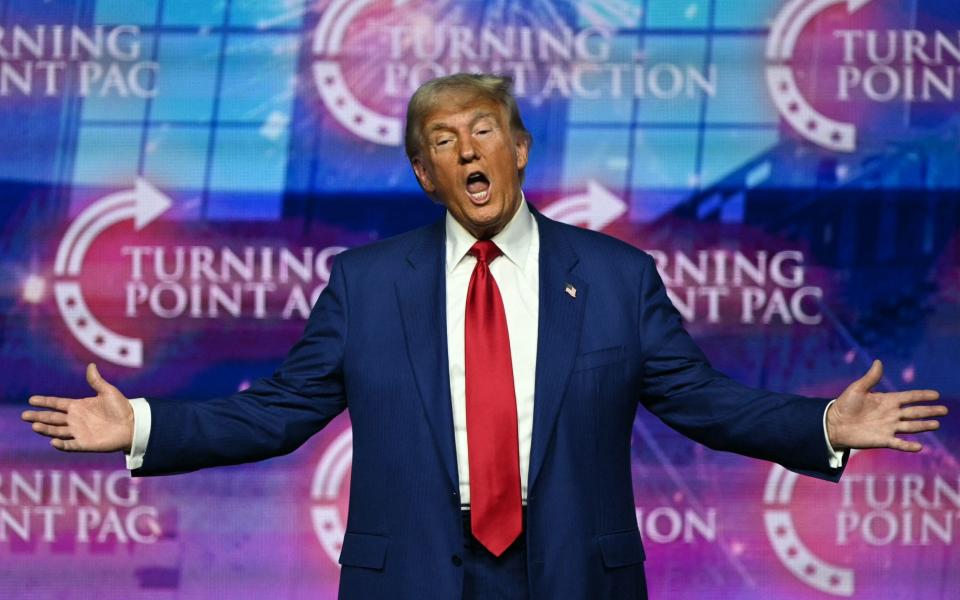

05:51 PM BST
Santander starts cutting jobs in the UK, report says
Santander has started a round of job cuts at its British unit to save costs, according to a Bloomberg report.
The cuts are reportedly focused on the Spanish bank’s UK headquarters.
As of June, Santander UK had 22,214 employees.
A Santander spokesman said that the bank “continuously” looks at its operating model to “ensure our teams are organised in the best way to support our customers effectively and efficiently.”
The job cuts come at a moment when the lender in the UK reported a 23pc year-on-year decline in its second-quarter net profit amid a fierce competition in the mortgage market.
The Telegraph has approached Santander for further comment.
05:40 PM BST
BHP reaches £23bn settlement for reparation of Brazil dam failure
Mining giant BHP has reached a R$170bn (£23bn) final settlement with the Brazilian authorities as reparations for the collapse of a dam that killed 19 people.
The 2015 collapse of the Fundão dam in the southeastern city of Mariana caused a giant mudslide that severely polluted the Rio Doce river, compromising the waterway to its outlet in the Atlantic Ocean.
A federal judge in Brazil had ruled in February that BHP, its Brazilian partner Vale and their joint venture must pay substantial damages for the collapse.
On Friday, Jorge Messias, Brazil’s attorney general, said: “The new agreement ushers in a new moment and brings hope to the population affected by the disaster. The government is taking the lead in actions to prevent people living in the Doce River Basin from continuing to have their dignity violated.”
BHP’s chief executive Mike Henry said on Friday that the dam failure was “a terrible tragedy. It should never have happened and must never be forgotten”.
The reparations are to be paid by the Brazilian joint venture, Samarco, in instalments over 20 years. BHP Brazil and Vale are guaranteeing the payments.
It comes days after the High Court in London began a 12-week trial centred on the disaster.
Lawyers representing 620,000 alleged victims have begun what is the largest group lawsuit in English history.
They claimed that “potential routes for redress in Brazil have not been effective” and that there was a “chasm” between BHP’s view of reasonable compensation and what the victims were “morally and legally” entitled to.
BHP told investors on Friday that the settlement with Brazilian authorities would not also resolve the lawsuit in London.
The Telegraph has approached BHP for further comment.
05:38 PM BST
European shares end week in the red as earnings disappoint
Europe’s main stock index closed today’s choppy session flat and notched weekly losses.
It came as a handful of weak corporate earnings from car-related companies such as Mercedes-Benz and Valeo, and appliances-maker Electrolux, dented investor sentiment.
The pan-European Stoxx 600 closed flat for the second straight day and logged its first weekly loss in three, with real estate stocks among the worst hit sectors for the week.
Car stocks also ended the session on a muted note, with Germany’s Mercedes-Benz dropping 1pc after third-quarter earnings in core car division missed estimates by a wide margin.
Valeo added to the sector’s woes, tanking 9.5pc as the automotive supplier cut its annual sales guidance for the second time this year.
Electrolux slumped 14.6pc to the bottom of the main index after missing third-quarter earnings expectations on continuing U.S. losses and rising competition from China.
Of the Stoxx 600 companies that have reported third-quarter earnings, onlt 35.3pc beat estimates versus the typical beat rate of 54pc, LSEG data showed earlier this week.
05:36 PM BST
Boeing exploring sale of its space business, says reports
Boeing is exploring the sale of its space business, the Wall Street Journal reported today, citing people familiar with the matter.
It is exploring a sale of its NASA business, including the troubled Starliner space vehicle and operations that support the International Space Station, the report added.
Boeing said that it “doesn’t comment on market rumours or speculation”.
05:30 PM BST
Rachel Reeves admits some working people face tax rises at Budget
Rachel Reeves has admitted that some working people will face tax rises at her maiden Budget next week, committing only to not raising “key” levies on workers.
The Chancellor also suggested that the Prime Minister is a “working person” after Sir Keir Starmer suggested landlords and anyone earning their income from assets are not workers.
Responding to a question on LBC Radio on whether some working people faced tax rises, the Chancellor said: “It’s not possible to close the gap in our public finances without having to make difficult decisions.
“I’m making the choice to not increase the key taxes that working people pay.”
Ms Reeves denied this would be in breach of Labour’s manifesto pledge not to raise taxes on workers.
She said: “We made a clear commitment in our manifesto not to increase the key taxes that working people pay, National Insurance, income tax and VAT.”
05:20 PM BST
Reeves rules out drink during the Budget
Rachel Reeves will have water during the Budget, ruling out following the old tradition of Chancellors drinking alcohol while making tax announcements.
She suggested she would have a cup of Earl Grey tea after giving her speech.
05:19 PM BST
‘No return to austerity in this Budget’
Rachel Reeves claimed that the Labour government will not “return to austerity”, in an interview with LBC.
05:17 PM BST
Reeves attacks Tories over future investment
Rachel Reeves has attacked the Tories for setting Britain on a “path of decline where investment as a share” of the economy “was set to fall sharply”.
05:16 PM BST
Reeves questioned over tax rises amid row over ‘working people’
Rachel Reeves has defended the Government’s position on “working people”. She said that Labour’s commitment was not to increase the key taxes, while attacking the Tories’ “unfunded” commitments.
In an interview with radio station LBC, she said people who go out to work are working people.
“There are going to be difficult decisions in the Budget next week … We’re going to have to make difficult choices,” she said.
She added: “The key taxes that working people pay will not be going up in the Budget.”
It comes after Sir Keir Starmer suggested that landlords and shareholders would not count as “working people”. He told Sky News yesterday: “They wouldn’t come within my definition.”
Sir Keir said his definition was “the sorts of working people who go out, work hard and maybe save a bit of money but don’t have the wherewithal to write a cheque to get out of difficulties.”
Sir Keir’s spokesman later clarified, saying the Prime Minister did not think all owners of shares fell outside his definition of working people.
His definition would include people who “have a small amount of savings or shares,” the spokesman added.
Nearly a quarter of the British public have invested in the stock market, according to investment platform Hargreaves Lansdown.
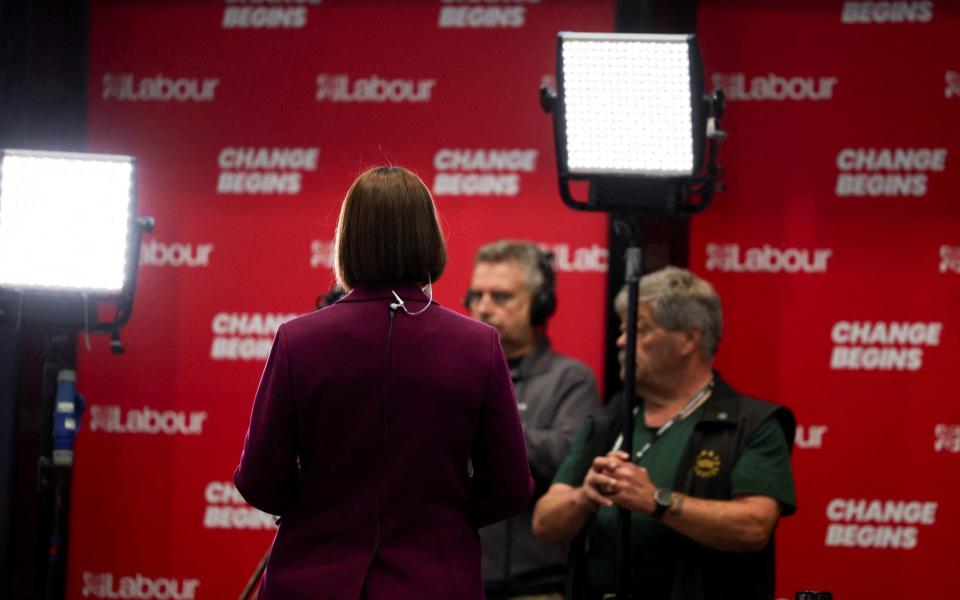

05:13 PM BST
FTSE 100 ends week in the red as investors await Budget
The FTSE 100 fell slightly on Friday, ending the week more than 1pc down as investors focused on next week’s autumn Budget.
London’s blue-chip index fell 0.3pc.
The index started the day in the red amid weakness in the energy and housebuilding sectors. While it swung positive several times during the day, the FTSE ended slightly down.
Russ Mould, analyst at AJ Bell, said it came after “pretty dire figures on consumer confidence with households in a downbeat mood ahead of next week’s Budget and the long-heralded ‘difficult decisions’ it might contain”.
At the end of the day in Europe, Frankfurt’s Dax index had risen 0.02pc, while the Cac 40 in Paris had closed down 0.1pc.
05:11 PM BST
Debt rule change will fuel growth, says Reeves
Rachel Reeves has defended her planned change to borrowing rules in an interview with LBC.
She said that the measure of debt should properly include the benefits of investment, not just the costs.
“It is important that we’re making those investments,” she said.
04:56 PM BST
Nvidia briefly overtakes Apple as world’s most valuable company
Nvidia dethroned Apple as the world’s most valuable company on Friday, following a record-setting rally in the stock powered by an insatiable demand for its new supercomputing AI chips.
Nvidia’s stock market value briefly touched $3.53 trillion, while that of Apple was $3.52 trillion, according to data from LSEG.
In June, Nvidia briefly became the world’s most valuable company, before it was overtaken by Microsoft and Apple. The tech trio’s market capitalisations have been neck-and-neck for several months. Microsoft’s market value stood at $3.20 trillion.
Nvidia’s stock has risen about 18pc so far in October, with a string of gains coming after OpenAI, the company behind ChatGPT, announced a funding round of $6.6bn. Nvidia provides chips used to train so-called foundation models such as OpenAI’s GPT-4.
Russ Mould, investment director at AJ Bell, said:
More companies are now embracing artificial intelligence in their everyday tasks and demand remains strong for Nvidia chips.
It is certainly in a sweet spot and so long as we avoid a big economic downturn in the United States, there is a feeling that companies will continue to invest heavily in AI capabilities, creating a healthy tailwind for Nvidia.
04:37 PM BST
US stocks to end the week lower as US election affects trade
The benchmark S&P 500 was on track to finish the week slightly lower, although gains in technology and communication services stocks were pushing the index higher during today’s trading.
The Dow Jones Industrial Average was flat, the S&P was up 0.6pc and the Nasdaq was up 1.3pc.
European shares in the Stoxx 600 were roughly flat. Overnight in Asia, MSCI’s broadest index of Asia-Pacific shares outside Japan closed higher by 0.1pc but dropped nearly 2pc for the week.
Tom Plumb, CEO and portfolio manager at Plumb Funds in Madison, Wisconsin, said:
Over time, interest rates, inflation and the economy are the leading factors that affect the stock market.
But in the short run, there’s no question that this is a market being bounced around by political developments and expectations, and the general perception that Trump would be better for the markets than Harris.
04:18 PM BST
Ford boss ‘doesn’t want to give up’ Chinese electric car


The boss of American car giant Ford has admitted he “doesn’t want to give up” an electric vehicle (EV) made by one of his Chinese rivals after driving it for six months.
Jim Farley, who has been Ford’s chief executive since 2000, said he had arranged for his own Xiaomi SU7 to be shipped back from Shanghai to Chicago after trips to China.
In an interview with the Electrify Everything Show, presented by former Red Dwarf actor Robert Llewellyn, Mr Farley said: “Everyone’s talking about the Apple car, but the Xiaomi car – which now exists, and it’s fantastic – they sell 10,000, 20,000 a month.
“They’re sold out for six months. Wow. You know, that is an industry juggernaut.
“I don’t like talking about the competition so much, but I drive the Xiaomi – we flew one from Shanghai to Chicago and I’ve been driving it for six months now and I don’t want to give it up.”
Read the full story…
03:55 PM BST
Oil price rallies on Middle East worries
Crude oil has risen 2.3pc this week, while gold is up 0.74pc, as investors weigh up the a possible Israeli attack on Iran.
Axel Rudolph, senior technical analyst at online trading platform IG, said:
The oil price is on track for a weekly gain as concerns over a possible Israeli retaliatory missile attack on Iran over the weekend makes investors jittery.
For the same reason the price of gold also remains in positive territory on a daily and weekly basis while trading close to this week’s record high.
03:46 PM BST
Nasdaq hits record high as Magnificent Seven make gains
The Nasdaq Composite hit a record high this afternoon, propelled higher by tech stocks.
The index hit 18,690.01, a rise of 1.5pc.
The so-called Magnificent Seven were all up. Tesla rose 1pc, having gained 20.1pc over five days. Microsoft gained 1.4pc, Amazon jumped 1.7pc, Nvidia gained 2.1pc, Meta rose 2pc and Alphabet gained 1.4pc.
03:32 PM BST
FTSE treads water ahead of Budget
Let’s have a quick round-up of the markets in London, then, where the FTSE 100 is treading water ahead of the Budget.
The UK’s blue-chip index is little changed today and on track for a weekly loss of 1.1pc.
The midcap FTSE 250 is up 0.2pc but facing a weekly drop of 1.5pc.
Meanwhile, oil prices are higher, with international benchmark Brent crude up 1.4pc to more than $75 a barrel.
With that, I’ll wish you a good weekend, when you get to it, as Alex Singleton takes over the live updates, including with an upcoming interview with Chancellor Rachel Reeves.
03:26 PM BST
S&P 500 rises at end of cautious week for Wall Street
Stocks gained ground on Wall Street this afternoon as companies continued reporting mostly solid earnings.
The S&P 500 rose 0.9pc, pushing the index back into positive territory for the week.
The Dow Jones Industrial Average 0.5pc, while the Nasdaq jumped 1.4pc.
This week the market has been cautious amid worries that stocks have become too expensive. Higher Treasury yields, which make stocks less appealing to investors, also added more pressure.
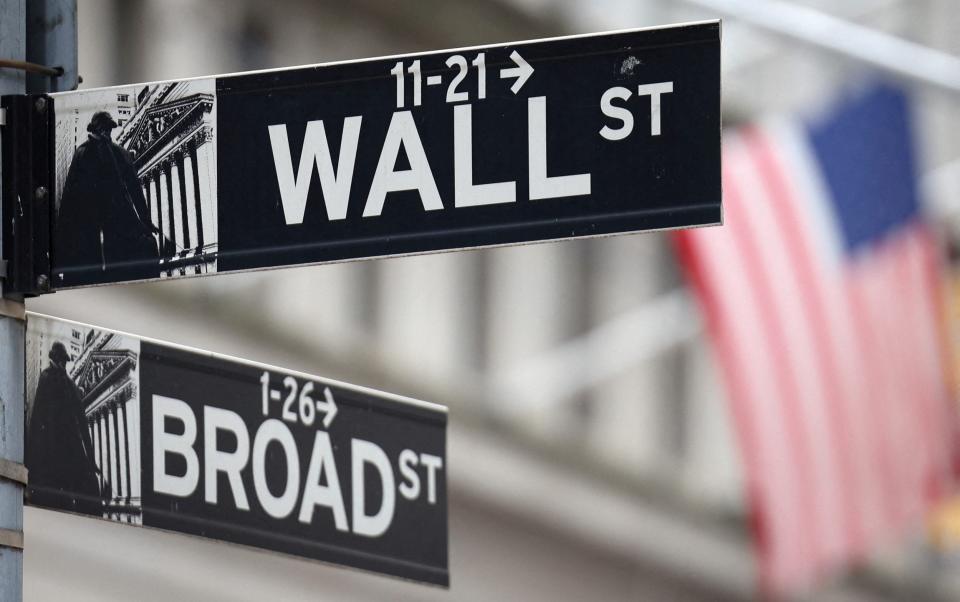

03:10 PM BST
Pound on track for worst month this year
The pound is on track for its worst month this year as investors remain cautious ahead of the Budget.
Sterling is down 2.5pc so far in October, which would be its worst month since September 2023.
It comes as hedge funds and asset managers are betting on declines in the pound ahead of the Budget, according to a Wall Street bank.
Citigroup analysts said currency markets are preparing for a weakening in sterling ahead of the Chancellor’s speech on Wednesday.
Matthew Ryan of financial services group Ebury, said investors were “perhaps holding fire on committing to sizable positions until after next week’s Budget, where Chancellor Reeves is expected to unveil sweeping tax hikes for individuals and businesses”.
The pound was last up 0.2pc today to nearly $1.30.
02:56 PM BST
New housebuilding plunges to lowest since 2009 in setback for Rayner’s building blitz


New housing starts have plunged to the lowest level since the financial crisis, in a blow to Angela Rayner’s building blitz.
Construction companies started building only 114,110 homes across the UK in the year ending in June, the lowest since 2009.
The figures published by the National Office for Statistics cast doubts over whether the Government will be able to deliver on building 1.5m homes before the end of the decade.
The pledge was key to Labour’s election campaign, as the party sought to position itself as “builders, not blockers”.
02:50 PM BST
Chapel Down shares plunge as it calls off sales plans
English wine producer Chapel Down has called off plans to sell itself as it warns that a smaller harvest will push it to a loss this year.
It told investors that “having evaluated a number of opportunities”, it had concluded that “there were no transactions that would create superior long term shareholder value than Chapel Down remaining a stand-alone AIM listed company.”
It added: “Chapel Down will continue to lead the development and consolidation of the English wine industry and will only consider transactions that are value creating for our shareholders.”
The producer of bacchus said that it expects a harvest this year of around 1,875 tonnes, compared with 3,811 last year and 2,050 tonnes in 2022.
It said that “late season weather has led to some pressure from mildew and consequently reduced yields, given our strict focus on quality”.
Shares fell as much as 19pc.
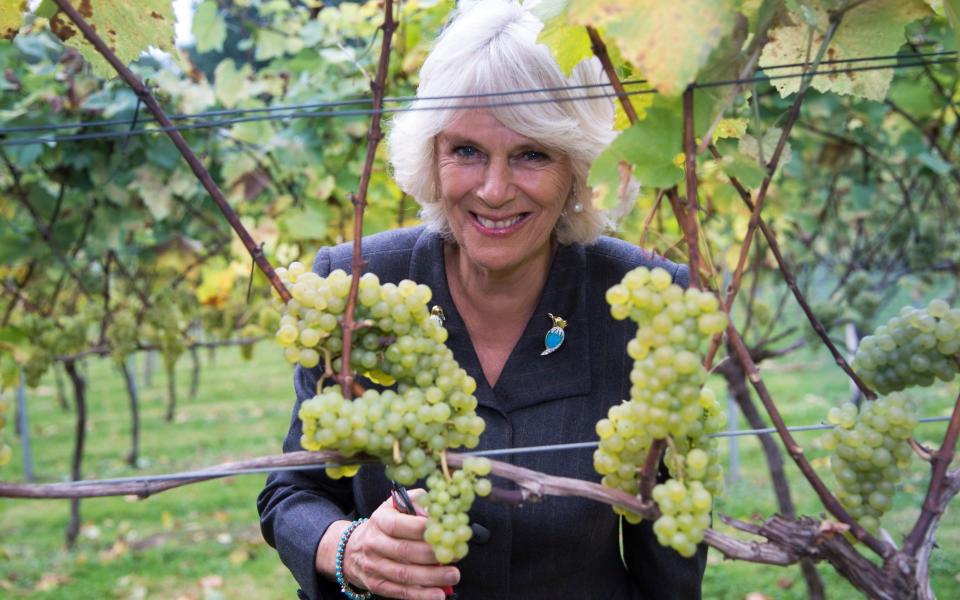

02:39 PM BST
US stock markets rise at opening bell
Wall Street’s main indexes opened higher as investors looked ahead to quarterly results from some of the biggest companies.
The Dow Jones Industrial Average rose 103.2 points, or 0.2pc, at the open to 42,477.51.
The S&P 500 rose 16.9 points, or 0.3pc, at the open to 5,826.75​, while the Nasdaq Composite rose 97.1 points, or 0.5pc, to 18,512.58.
02:12 PM BST
White Stuff bought ‘in £50m deal’
High street clothes shop White Stuff has been bought by South African-based retailer The Foschini Group (TFG), the companies said, in a deal thought to be worth around £50m.
White Stuff chief executive Jo Jenkins will continue in the role while founders George Treves and Sean Thomas will step down from the board and leave the business.
Mr Treves said the company’s sale to TFG, which already owns the Hobbs, Whistles and Phase Eight fashion brands, is “significant and emotional” for him and co-founder Mr Thomas.
Justin Hampshire, chief executive of TFG London, said: “With White Stuff’s strong presence on the high street and significant potential for sustained growth, we are committed to supporting Jo and her talented team with their ambitious rollout strategy to further increase its store and concession estate.
“Simultaneously, TFG London will continue to invest in the White Stuff brand and online offer to drive further awareness and growth.”
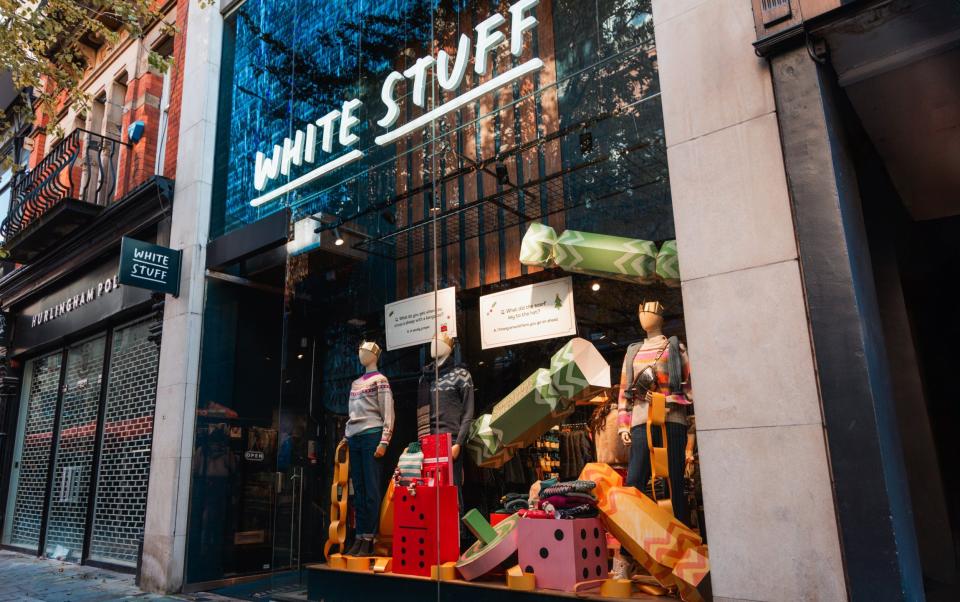

01:54 PM BST
Flying taxi pioneer that raised £1bn goes bust


A German flying taxi pioneer that was once valued at more than €3bn (£2.5bn) is preparing to file for bankruptcy after officials in Olaf Scholz’s government blocked a cash infusion.
Lilium, which made its first successful flight in 2017, said the bulk of its businesses were unable to pay their debts and that the divisions would file for self-administration, a form of insolvency, as it looks to sell its assets or secure rescue funding.
Its collapse came after Lilium was told on Oct 17 that the government in Berlin would not approve a €50m guarantee for a loan from a state-owned investment bank.
It also failed to reach a deal with the government in Bavaria for a further €50m guarantee.
Read how its value has collapsed by more than 98pc from a high point in Jan 2021.


01:33 PM BST
Oil rises as Israel conflict rumbles on
The price of oil has risen as negotiators from Israel and Hamas are expected to meet in the coming days for talks aimed at ending the conflict in Gaza.
Brent crude was up 1pc to more than $75 a barrel as traders remain on alert for a potential Israeli response to Iranian missile strikes earlier this month.
Oil prices have moved up and down this month amid concerns that there will be a glut of supplies early next year.
John Evans, an analyst at brokerage PVM, said: “The market is not exactly paralysed but uncertainty makes investors understandably and justifiably pragmatic.”
01:14 PM BST
Five new freeports to be announced in Budget, says Starmer
Funding for five freeports across the UK and a new investment zone will be set out at the Budget, Sir Keir Starmer has said.
The Prime Minister said the plans would help to drive his Government’s growth agenda, delivering new jobs and investment across different regions of the UK.
The location of the five new freeports will be revealed by Rachel Reeves at the October 30 Budget, and it is understood they will be spread across the UK, not just in England.
Funding for the East Midlands investment zone announced by Sir Keir meanwhile builds on a programme of work started by the previous Tory government.
Speaking to broadcasters while attending a Commonwealth summit in Samoa, the Prime Minister said the East Midlands investment zone was “really important” to his drive for economic growth.
“These zones attract investment, and they’re measured in tens of thousands of well paid jobs. So this is really good news,” he said.
Investment zones use public cash to attract private investment to a region, and are focused on attracting specific industries to that area based on a UK-wide strategy.
Funding for two zones based in West Yorkshire and the West Midlands were confirmed by Angela Rayner at Labour’s party conference, after plans for a total of eight were laid out by the last government in the 2023 budget.


01:08 PM BST
People who can’t write a cheque are hardest hit by shocks, says No 10
Downing Street has pushed back again on Sir Keir Starmer’s suggestion that people who own shares are not “working people”.
The Prime Minister’s deputy spokesman said people who “cannot always write a cheque” are the “hardest hit by economic shocks”.
Asked whether people with stocks and shares are classed as “working people”, the spokesman said: “The point that the Prime Minister was making in his interviews yesterday is that it is those who cannot always write a cheque who are the hardest hit by economic shocks – and that’s why it’s vital that we restore economic stability and that’s what you’ll see set out in terms of the approach at the Budget next week.”
The spokesperson later added: “He was speaking about who is at the forefront of his mind’s eye in terms of the priorities and the decisions that the Government takes when it comes to economic stability.”
12:51 PM BST
The ‘devastating’ £2.9bn tax raid that could destroy the British seaside
A Labour tax raid could wipe out seaside amusement arcades, Rachel Reeves has been warned.
Doubling the rate of machine games duty is among a raft of proposals currently being considered by the Chancellor as part of a potential £2.9bn tax raid on the gambling industry.
However, the move would deal a heavy blow to amusement arcades, putting thousands of jobs at risk and threatening the future of popular seaside games like 2p and bingo machines, experts and business owners say.
Our money writer Rob White outlines why the “devastating raid” could “destroy the British seaside”.


12:16 PM BST
Wall Street expected to suffer weekly loss amid election uncertainty
US stock markets are on track to end a run of six consecutive weekly gains amid increasing bets that Donald Trump will win the presidential election.
All three main stock indexes are expected to open higher today but they have fallen over the course of the week as investors bet a stronger economic outlook could limit the scope of future interest-rate cuts by the Federal Reserve.
Markets have also started pricing in a second Donald Trump administration in recent weeks, despite worries of a possibly contested result and whether one party will control Congress following the election.
Tesla shares dipped 1.8pc in premarket trading after a nearly 22pc surge on Thursday after a strong sales forecast.
Shares of Apple dipped 0.8pc after data showed iPhone sales in China fell in the third quarter, while Capri slumped 46.4pc after a US judge blocked a pending merger between the company and handbag maker Tapestry.
In premarket trading, the Dow Jones Industrial Average was up 0.1pc, while the S&P 500 and Nasdaq 100 had gained 0.2pc.
11:52 AM BST
Russia hikes interest rates to 21pc amid soaring inflation
The Bank of Russia raised interest rates by more than markets expected as policymakers scramble to bring soaring inflation under control in Vladimir Putin’s regime.
The central bank announced it was lifting its key rate by two full percentage points from 19pc to 21pc, higher than most predictions for a one point increase.
It comes as inflation surged to 13.4pc in October, up from 12.5pc in September, as Putin’s war economy grapples with Western sanctions.
The Bank of Russia said: “The balance of inflation risks is still significantly tilted to the upside.”
“The Bank of Russia holds open the prospect of increasing the key rate at its upcoming meeting.”
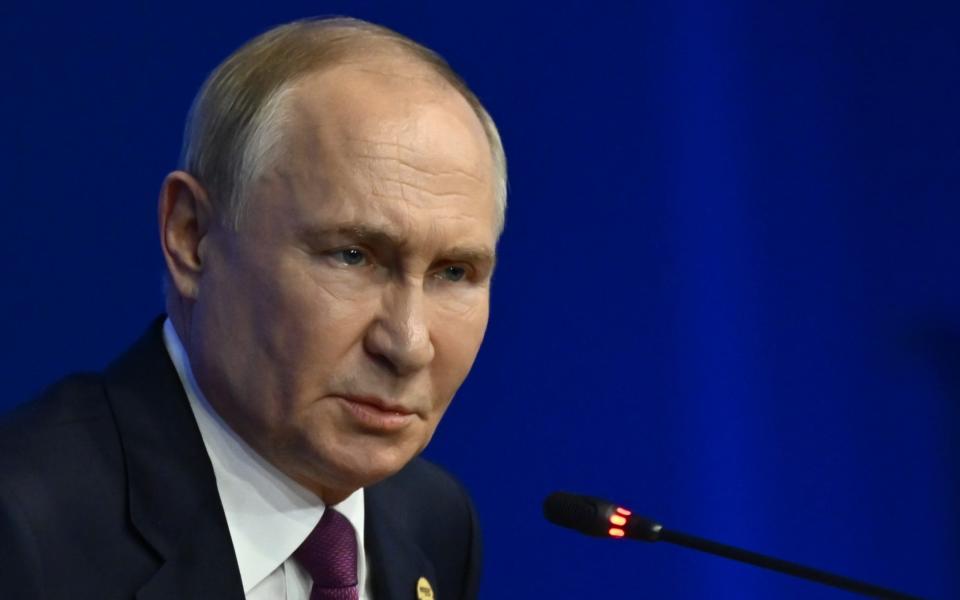

11:37 AM BST
Cummings-backed agency hands £50m to AI chip companies


An innovation agency that was the brainchild of former No10 adviser Dominic Cummings has handed £50m to semiconductor start-ups and scientists to develop the next wave of artificial intelligence (AI) microchips.
The Advanced Research and Invention Agency (ARIA), which was launched in 2023 with £800m in funding to back high-risk technologies, said the funding would be put towards finding solutions for the world’s “insatiable demand for more computing power”.
The projects will look to find ways to “radically reduce the cost and energy consumption of AI hardware”, with investment going into chip start-ups, AI software and advanced simulations.
Suraj Bramahavar, the project’s director, said: “The way the human brain learns is more efficient than the way computers learn by a factor of a million. We’re seeking to uncover new technological pathways that can bridge this massive gap.”
AI start-ups and tech giants have been spending billions of dollars on advanced semiconductors, which are used to train – or develop – new AI programmes, such as ChatGPT. Building these technologies requires vast amounts of computing power and energy, creating a challenge for researchers to cut these costs.
Among the businesses to secure funding are UK start-up Fractile, which recently secured investment from NATO’s innovation fund.
Researchers at Imperial College London, Cambridge, Edinburgh University and King’s College London will all get grants, as will UK-listed Alphawave Semiconductor.
The funding will also back two US start-ups, Rain AI and Normal Computing. They will be expected to set up a UK entity and grow their teams in Britain as part of the funding. If overseas companies do develop cutting-edge technology with the grant, the UK will be able to claim royalties.
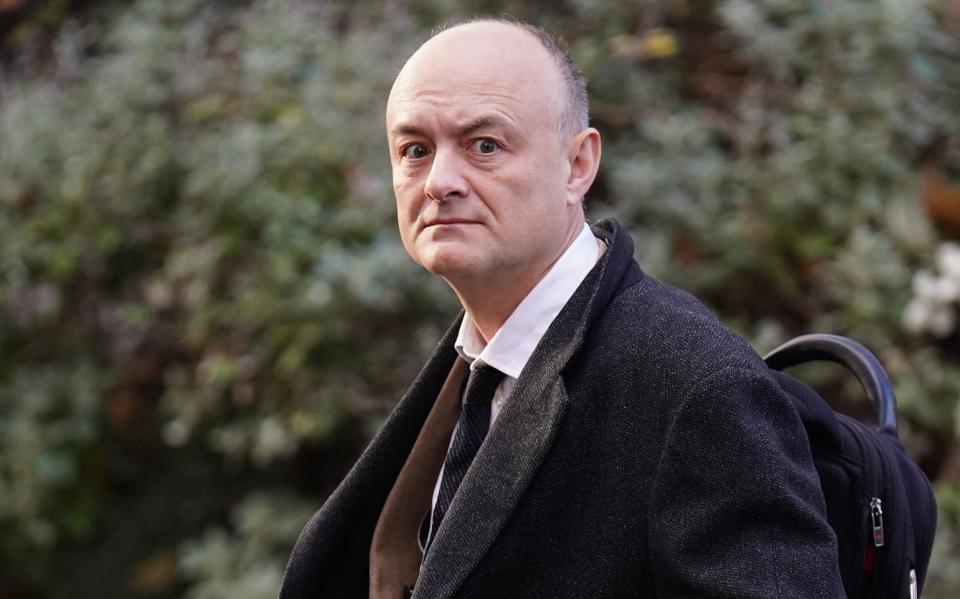

11:14 AM BST
Hedge funds selling pound ahead of Budget, says Citi
Hedge funds and asset managers are betting on declines in the pound ahead of the Budget, according to a Wall Street bank.
Citigroup analysts said currency markets are preparing for a weakening in sterling ahead of the Chancellor’s speech on Wednesday.
Kristjan Kasikov, who heads its foreign currency team, said: “Our data suggests the FX market is positioned slightly bearish sterling ahead of the Budget.
“Both hedge funds and asset managers have been net sterling sellers since the start of September.”
10:56 AM BST
Putin asked Musk to switch off internet over Taiwan
Vladimir Putin asked Elon Musk to avoid activating his Starlink satellite internet service over Taiwan as a favour to Chinese leader Xi Jinping, security officials in the US and Europe believe.
A Wall Street Journal report said the richest man in the world has been in regular contact with the Russian leader since late 2022, citing several unnamed current and former officials in the US, Europe and Russia.
The report does not say whether Mr Musk took any action in response to Putin’s request.
Starlink has emerged as a lifeline for Ukraine’s military as it attempts to maintain internet connectivity on the front lines in its conflict with Russia.
Our reporter Gregor Stuart Hunter in Taipei outlines how the Russian president asked world’s richest man not to activate his Starlink satellite.


10:40 AM BST
Gas prices hit highest this year ahead of cold snap
Gas prices have hit their highest level this year as Europe prepares for colder weather.
Dutch front-month futures, the benchmark contract on the Continent, rose as much as 1.9pc to nearly €43 per megawatt hour, putting them on track for a weekly gain of more than 9pc.
Lower temperatures are forecast for next week, while wind power generation is expected to be lower, boosting demand for gas.
Europe’s storage sites remain more than 95pc full, but prices are rising amid concerns about disruption for the Middle East and amid outages at plants in Norway and the US.
Analysts at Saxo said gas prices were rising “ahead of winter and in Europe amid supply concerns”.
10:18 AM BST
Pound on track for weekly loss
The pound is on track for its fourth weekly loss in a row amid uncertainty about the Budget and expectations that the Bank of England will step up the pace of interest rate cuts.
Sterling was last up 0.1pc today to $1.298 but was on track to decline 0.5pc over the course of the week.
The pound was up 0.1pc against the euro, which is worth 83.4p, amid increasing bets that the European Central Bank will step up the pace of interest rate cuts in the face of a weakening eurozone economy.
09:53 AM BST
Reeves ‘unlikely’ to spend full £50bn from changing debt rules, says Goldman Sachs
The Chancellor would be “unlikely” to use all the £50bn headroom created by her changes to debt rules, analysts at Goldman Sachs have said, as she tries to avoid another Liz Truss moment.
The Wall Street bank thinks Rachel Reeves could announce an increase in investment spending of about £25bn within five years, which would be “phased in gradually over several years”.
Ms Reeves confirmed she would change the public sector borrowing rules ahead of her Budget, as she seeks to avoid any turmoil in bond markets similar to those seen when Ms Truss’s government announced unfunded tax cuts in 2022.
Meanwhile, to avoid a return to austerity, the Chancellor raise current spending by around £30bn a year compared to plans announced in Spring Budget, the bank said.
It admitted Ms Reeves would have been given “very little scope” for borrowing under the previous government’s fiscal rules to get debt falling as a percentage of GDP by the fifth year of the OBR forecast for spending.
Goldman Sachs’ chief European economist Sven Jari Stehn said her change to the rules to separate out spending on investments is a “more significant shift” than it had previously expected but it would still have “only a limited impact on the current deficit at the five year horizon”.
He said it “would be very unlikely to use all the resulting fiscal space and would instead leave a much larger margin of headroom against the debt rule”.
He said: “Nonetheless, with the debt rule unlikely to bind, there is considerable uncertainty around exactly how much capital spending could increase.”
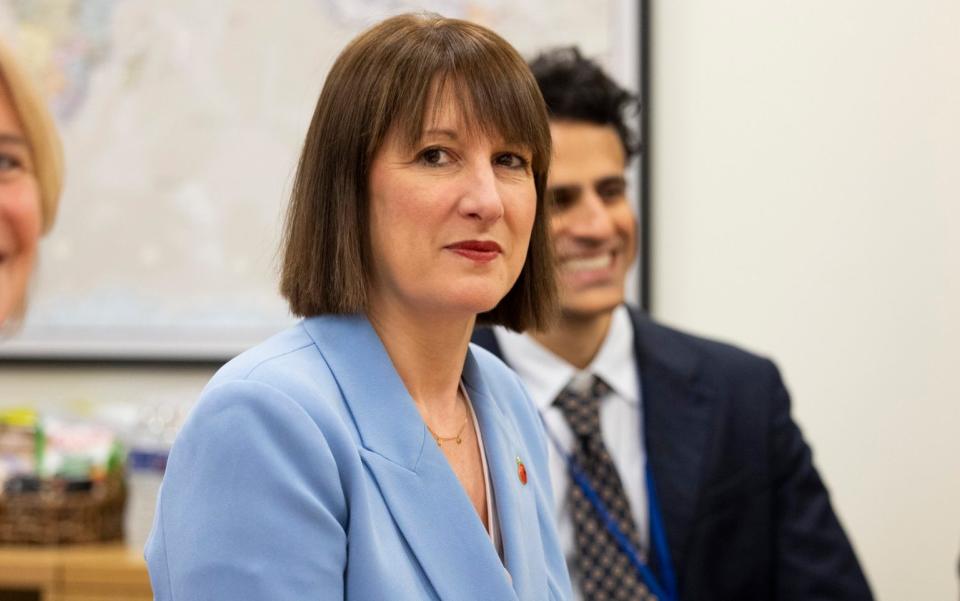

09:30 AM BST
Germany in ‘deep in recessionary territory’ despite improving confidence
Germany’s economy is in “deep in recessionary territory”, economists have said despite data showing confidence among bosses has started to improve.
The Ifo Business Climate Index rose by more than expected from 85.4 in September to 86.5 in October. It was the first rise in six months.
Ifo president Clemens Fruest said: “Expectations were brighter but marked by skepticism.”
Franziska Palmas, senior Europe economist at Capital Economics, said: “The rise in the Ifo Business Climate Index in October still left it deep in recessionary territory.
“With growth in the rest of the euro-zone also weak, we now expect the ECB to cut its deposit rate by 50bp in December.”
She added: “The outlook for 2025 is also poor as tight fiscal policy, a loss of competitiveness in industry and adverse demographics are likely to offset any boost from a recovery in real household incomes and monetary easing.
“We currently forecast the German economy to grow by just 0.4pc in 2025.”
YEAH! The German economy stopped the decline for the time being: German business confidence grew slightly more optimistic this month, as the manufacturing sector’s decline halted. Ifo business-climate index climbed to 86.5 in Oct from 85.4 the previous month, its first increase… pic.twitter.com/O28mWEQCSO
— Holger Zschaepitz (@Schuldensuehner) October 25, 2024
09:10 AM BST
UK stocks tread water ahead of Budget
The FTSE 100 was little changed in early trading amid uncertainty over the announcements in the upcoming Budget.
The UK’s blue-chip stock index was flat, while the midcap FTSE 250 edged down 0.1pc, as Rachel Reeves’fiscal announcement looms over markets.
NatWest surged 5.2pc to the top of the FTSE 100 after it revealed better than expected profits and provided more mortgages in recent months.
It helped raise banking stocks by as much as 0.9pc across both indexes.
Boohoo was down 0.8pc after it said it is willing to discuss a board seat with Frasers but raised doubts about whether retail tycoon Mike Ashley could be chosen as its next chief executive.
08:51 AM BST
Traders cut bets on interest rate cuts after Reeves changes debt rules
Money markets have reduced bets on the Bank of England cutting interest rates next month after the Chancellor announced plans to change the way debt is calculated in the public finances.
Traders are still betting there is a 96pc chance that interest rates will come down from 5pc to 4.75pc at the meeting next month.
However, the move was fully priced on Thursday, before a rise in UK bond yields.
Kathleen Brooks, research director at XTB, said: “This is hardly a ‘Truss-like’ market reaction, however, it adds to the upward pressure on the 10-year bond yield, which has already risen by more than 50 basis points in the past month.
“UK yields have also outpaced US and German yields in recent weeks.”
She added: “From a financial market perspective, this is a high stakes budget, and one that could have big ramifications for financial markets.
“The OBR and the Chancellor need to convince the markets that her debt rule change is best for the country and will reap growth benefits, otherwise UK bond markets could get spooked.”
08:33 AM BST
Borrowing costs fall after Reeves changes debt rules
The cost of government debt has fallen after Rachel Reeves announced she would change Britain’s debt rules.
The yield on 10-year UK bonds – the return the government promises to buyers of its debt – has fallen three basis points in early trading to 4.21pc.
The yields on UK gilts rose on Thursday after it was first reported that the Chancellor planned to change her debt rules to allow her to spend an extra £50bn on infrastructure.
Deutsche Bank senior strategist Jim Reid said: “The moves come ahead of the new government’s first Budget next week, with Chancellor Rachel Reeves confirming yesterday that the government would change the way it measures debt, in order to fund extra investment.”
The slump in UK bonds was in stark contrast to a global rally around the world amid expectations of greater interest rate cuts by the European Central Bank.
Shadow chancellor Jeremy Hunt warned Ms Reeves against a borrowing binge, saying her actions could push up mortgage costs as “increasing borrowing meant interest rates would be higher for longer”.
Andrew Griffith, the former City minister, said before the general election the Chancellor had pledged she was “not going to fiddle the figures or make something to get different results”.
However, Ms Reeves vowed to be prudent with her public spending, saying there will be “guardrails” in place and pledging she will “not be using all of the headroom available” in the public finances.
08:16 AM BST
Boohoo pushes back against Mike Ashley’s attempted boardroom coup
Boohoo has warned Mike Ashley’s stakes in its fast fashion rivals could scupper his attempted boardroom coup at the online clothing retailer.
Shares were flat in early trading after the company pointed to the retail tycoon’s shareholdings in Frasers and Asos after the Sports Direct-owner published an open letter calling for Mr Ashley to be made chief executive at Boohoo.
Although it did not rule out offering him the role, Boohoo said it Frasers and Asos “operate in similar markets to Boohoo” and it had to “protect the company’s commercial position and the interests of other shareholders”.
Instead, it said it is “willing” to discuss offering a board seat to Frasers.
In a scathing letter on Thursday, Frasers claimed “incompetence” had sparked a “leadership crisis” at Boohoo, adding that the board had “lost its ability to manage Boohoo’s business and investments”.
The Sports Direct founder has demanded a shareholder vote to appoint him as Boohoo’s new chief executive after Mr Ashley’s Frasers Group amassed a 27pc stake in the business.
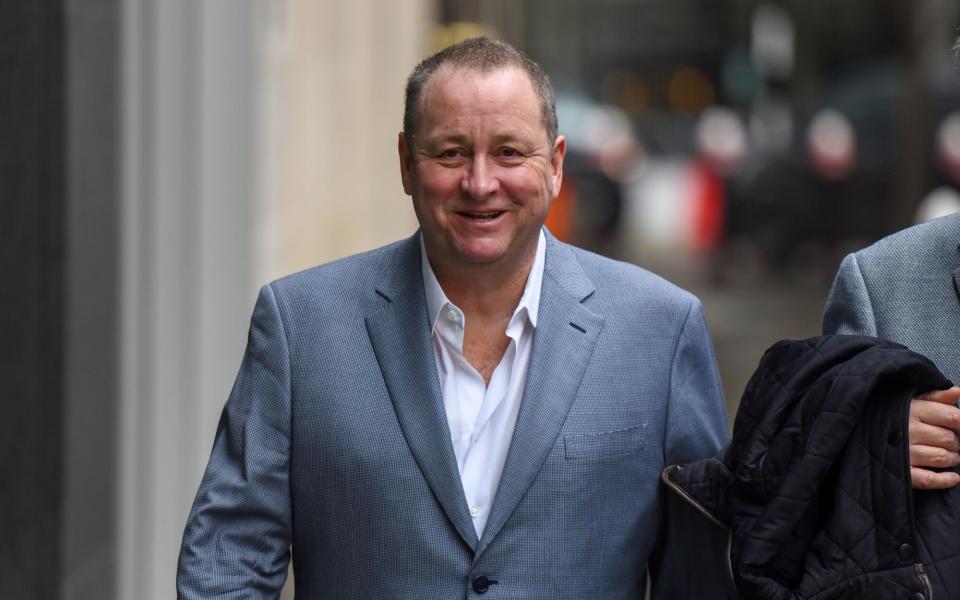

08:05 AM BST
UK markets open flat amid Budget uncertainty
Stock markets in London began the day little changed as investors were wary ahead of the Chancellor’s proposed changes to Britain’s debt rules.
The FTSE 100 began the day flat at 8,272.45 while the FTSE 250 was little changed at 20,786.32.
07:55 AM BST
Landlords and shareholders face tax hikes after Starmer suggests they are not working people


Landlords and shareholders face being hit with tax rises at next week’s budget after Sir Keir Starmer suggested they are not working people.
The Prime Minister said those who earn extra income from property and investments are not covered by Labour’s manifesto pledge to protect “working people” from paying more.
His remarks on the sidelines of the Commonwealth heads of government summit in Samoa will heighten fears that he and Rachel Reeves, the Chancellor, are set to come after Britons with assets at Labour’s first budget next Wednesday.
Read the Prime Minister’s comments and how No 10 later tried to play down the fears.
07:51 AM BST
Changing debt rules in line with manifesto, insists minister
The Chancellor’s expected changes to fiscal rules at the Budget are in line with Labour’s manifesto promises, a Treasury minister has suggested.
James Murray, the Treasury secretary, told Times Radio that “what the Chancellor was setting out is what we pledged to do in our manifesto around fiscal rules”.
Labour’s 2024 election manifesto said Ms Reeves would follow two rules: The current budget would be in balance so that day-to-day costs are met by revenues.
The second rule is that debt must be falling as a share of the economy by the fifth year of the economic forecast.
On Thursday, she confirmed that the way debt is measured as part of that target would be changed to allow greater flexibility.
Mr Murray told the radio station: “What the Chancellor has said is the second of her fiscal rules, the investment rule, will make sure that we measure debt differently to recognise the value of assets, not just the cost of investment.
“Because what’s crucial is that we have investment in this country that will underpin greater growth in the years ahead.”
07:41 AM BST
Thames Water launches bid for £3bn funding lifeline
Thames Water is nearing an agreement with creditors about securing a fresh financing package worth £3bn after warning it could run out of cash by December.
The debt-laden utilities company said it has lined up an agreement with creditors that will see it handed an initial £1.5bn with capacity for a further £1.5bn across two tranches of £750m.
It is seeking bondholders’ consent for the move, which would extend its liquidity to October next year.
Chief executive Chris Weston said: “Today’s news demonstrates further progress to put Thames Water onto a more stable financial footing as we seek a long-term solution to our financial resilience.”
Water companies are presently wrestling with regulator Ofwat about how much they would be able to raise their bills over the next five years, with a decision expected by January at the latest.
Thames Water chairman Sir Adrian Montague said: “The board and leadership team remain focused on stabilising the business and today’s announcement is an important step in the process to increase its long-term financial resilience.
“There will be further stages and we will continue to work collaboratively with our many stakeholders as we look to attract new equity into the business and seek a final determination that enables the delivery of our ambitious business plan for the next five years.”


07:17 AM BST
NatWest boosts outlook after £1.7bn profit in three months
NatWest raised its outlook for the year after reporting better than expected profits in the three months to September as it expanded lending and focused on efficiency.
The taxpayer-backed lender raised its outlook for income to £14.4bn from £14bn and its return on tangible equity from 14pc to 15pc as it revealed a better than expected third quarter.
Operating profits hit £1.7bn during the period, up 25.7pc on the same period last year and better than forecasts for less than £1.5bn.
Net income came in at £1.2bn, well ahead of estimates of less than £1bn.
Chief executive Paul Thwaite said: “The strength of NatWest Group’s performance is underpinned by the support we provide to our 19m customers in every nation and region of the UK.
“By continuing to deliver against our strategy, we are growing and simplifying our bank whilst managing our capital more efficiently.
“As the UK’s biggest bank for business, and one that serves millions of households, NatWest Group plays a key role in driving economic growth across the UK. Throughout the third quarter of 2024, we have grown our lending, helping customers to buy or remortgage their homes or to start and grow their businesses.
“With customer activity increasing, defaults remaining low and optimism amongst businesses and consumers, we are well placed to succeed with our customers and for our shareholders in the months and years ahead.”
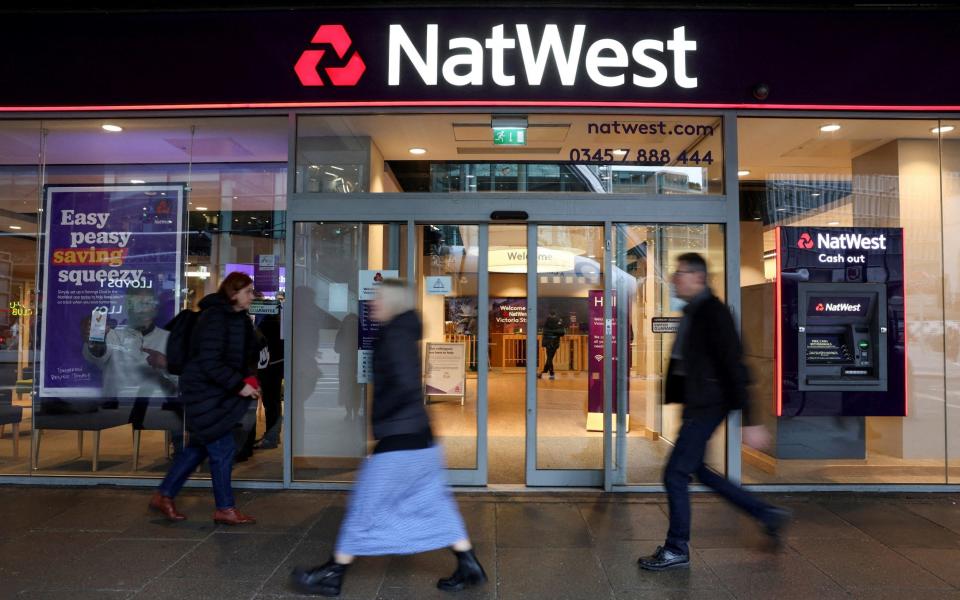

06:52 AM BST
Confidence slumps ahead of Budget
Fears over the Budget have hammered consumer confidence, a closely watched survey showed.
Sentiment worsened again this month, according to GFK’s long-running tracker of the mood among households, hitting its lowest point this year.
Consumers’ views of their own financial situations, the health of the wider economy and Britain’s growth prospects have all deteriorated, said Neil Bellamy at GFK.
He said: “As the Budget statement looms, consumers are in a despondent mood despite a fall in the headline rate of inflation,” he said.
“This month’s Consumer Confidence Barometer paints a picture of people holding their breath to see what’s in store for them on October 30.”
06:48 AM BST
Tax raid will stunt growth, Reeves warned


Rachel Reeves’ anticipated raid on capital gains tax (CGT) risks driving investors out of Britain and stunting the economy, analysts have warned.
The vast majority of the money raised from CGT comes from just 38,000 people per year and the Exchequer risks losing money instead of gaining it if some or all of this group choose to move abroad because of higher taxes, the Centre for Policy Studies (CPS).
Daniel Herring, economist at the think tank, said an increase to the rate of the tax – which ranges from 10pc to 28pc depending on the income of the person recording an profit and the type of investment involved – would send Britain plunging down the international rankings of competitive economies. He said:
It is clear that Labour is playing a dangerous game with capital gains tax.
Capital gains tax hikes along with changes to non-dom status, employer’s National Insurance, and potential rises on inheritance tax may lead to an exodus of wealthy investors, entrepreneurs and job creators from the UK.
The full effects are uncertain, but it is very possible that any rise in CGT will raise much less revenue than analyses suggest, and could very easily be revenue-negative.
The tax rises Labour appears to be planning would not just be bad for growth, but could make the fiscal situation even worse.
06:40 AM BST
Good morning
Thanks for joining us. The Chancellor has been warned that increasing capital gains tax in the Budget might raise less revenue and hurt economic growth.
Economists at the Centre for Policy Studies (CPS) said potential tax rises could lead to “an exodus of wealthy investors, entrepreneurs and job creators from the UK”.
5 things to start your day
1) Reeves warned over £50bn ‘debt fiddle’ | Chancellor pledges changes in Budget amid investors’ fears over borrowing binge
2) Reeves has handed herself an extra £50bn. This is where she could spend it | Changes to debt rules will allow the Chancellor to boost investment across a range of sectors
3) Heat from data centres and factories to warm thousands of homes | The Government wants heat networks to cut city centre carbon emissions
4) Liverpool scaffolder who started protein shake company lands £62m payday | Former workman sells off 19pc stake as Applied Nutrition lists on London stock market
5) Ambrose Evans-Pritchard: Trump’s nostalgia for 19th-century tariffs has alarming implications for the world | The former president’s trade team is playing with global fire
What happened overnight
Asian stocks were mostly higher aside from in Japan, where investors were awaiting the outcome of an election on Sunday.
Japanese Prime Minister Shigeru Ishiba, who took office just weeks ago, called the snap general election to drum up support as the ruling Liberal Democrats grapple with a political funding scandal.
Recent upheavals have added to uncertainty for markets, complicating the Bank of Japan’s efforts to shift away from long-standing near-zero interest rates.
Core inflation in Japan’s capital was 1.8pc in October, lower than the central bank’s 2pc target for the first time in five months, the government reported. That reinforced expectations that the central bank will keep its key interest rate unchanged at a policy meeting next week.
Tokyo’s Nikkei 225 index lost 1pc to 37,771.79, while the Japanese yen rose against the US dollar.
Hong Kong’s Hang Seng added 1.1pc to 20,720.60, and the Shanghai Composite gained 0.8pc to 3,307.14.
China’s central bank kept its medium-term lending rate unchanged at 2pc. It also issued 700 billion yuan (£75.8bn) in one-year medium-term lending facility loans to financial institutions, according to the bank’s statement.
Elsewhere, South Korea’s Kospi climbed 0.3pc to 2,590.30 and Australia’s S&P/ASX 200 climbed 0.1pc to 8,216.50. Taiwan’s Taiex increased 0.3%.
On Wall Street, the Dow Jones Industrial Average fell 0.3pc to 42,374.36, the S&P 500 rose 0.2pc to 5,809.86 and the Nasdaq Composite advanced 0.8pc to 18,415.49.
In the bond market, the yield on 10-year US Treasury notes dipped to 4.217pc from 4.231pc late on Wednesday. It has risen from 3.623pc on Sept 16.
The yield has been rising in recent weeks partly because both candidates in the US presidential election are keen on spending money, which will widen the deficit, according to Mark Malek, chief investment officer at SiebertNXT in New York.
Broaden your horizons with award-winning British journalism. Try The Telegraph free for 3 months with unlimited access to our award-winning website, exclusive app, money-saving offers and more.
